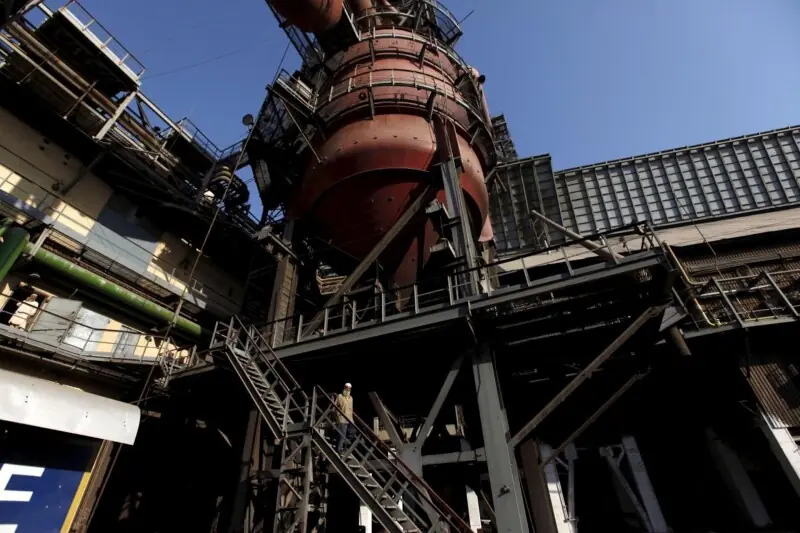Federal Minister for Maritime Affairs, Muhammad Junaid Anwar Chaudhry, on Tuesday unveiled a plan to revive the dormant Pakistan Steel Mills (PSM) through advanced technology and a new maritime-industrial partnership with the Ministry of Industries and Production.
During a high-level meeting with Special Assistant to the Prime Minister on Industries and Production, Haroon Akhtar Khan, who called on the maritime minister at his office, Junaid Chaudhry, presented a detailed proposal to establish Pakistan’s first “Sea to Steel Green Maritime Industrial Corridor” at Port Qasim, read a statement.
Chaudhry said the initiative could reshape Pakistan’s industrial and maritime sectors by integrating ship recycling, steel manufacturing, and sustainable industrial practices into one ecosystem.
According to the statement, Pakistan currently imports around $6 billion worth of steel annually, with demand expected to grow by nearly 6% each year through 2035, according to a World Bank report. The minister noted that the proposed project could reduce steel imports by up to 20%, potentially saving the country over $13 billion in the next decade.
Pakistan to launch national action plan to protect endangered sharks in Arabian Sea
At the heart of the proposal is the revival of the long-idle Iron Ore and Coal Berth (IOCB) at Port Qasim, inactive since 2015. The plan envisions converting the facility into a modern ship recycling and repair complex featuring a large floating dock capable of servicing Aframax-class vessels.
Chaudhry explained that steel recovered from dismantled ships would either be supplied to Pakistan Steel Mills or reprocessed at a new facility near Port Qasim into high-grade industrial steel.
“This approach”, he said, “would reduce dependence on imported raw materials, conserve foreign exchange, and support the country’s domestic steel and shipbuilding industries”.
The minister added that the same dock could cater to the Pakistan National Shipping Corporation (PNSC), which currently relies on foreign shipyards for maintenance. Developing local repair capacity, he said, would help cut operational costs and strengthen maritime infrastructure.
Special Assistant Haroon Akhtar Khan welcomed the proposal, emphasising the need for inter-ministerial cooperation.
“We must work together for Pakistan’s economic growth and the welfare of our people,” he said, expressing confidence in the project’s transformative potential.
Commodore (R) Muhammad Jawad Akhtar, Technical Advisor Maritime at the Ministry of Maritime Affairs, endorsed the plan, calling it a practical expression of the government’s Blue Economy vision. He described the corridor as “an integrated model of sustainable ship recycling, green steel manufacturing, and maritime industrialisation.”
“Once operational, the Sea to Steel Green Corridor will attract investment, create jobs, and facilitate technology transfer while positioning Pakistan as a regional maritime hub,” he added.
The meeting concluded with an agreement to finalise the project’s financial and technical frameworks in consultation with national agencies and international partners. A formal presentation to key stakeholders is expected in the coming weeks.
The meeting was attended by senior officials from both ministries, along with representatives from leading Chinese maritime companies.


